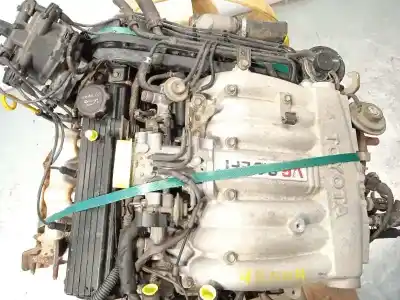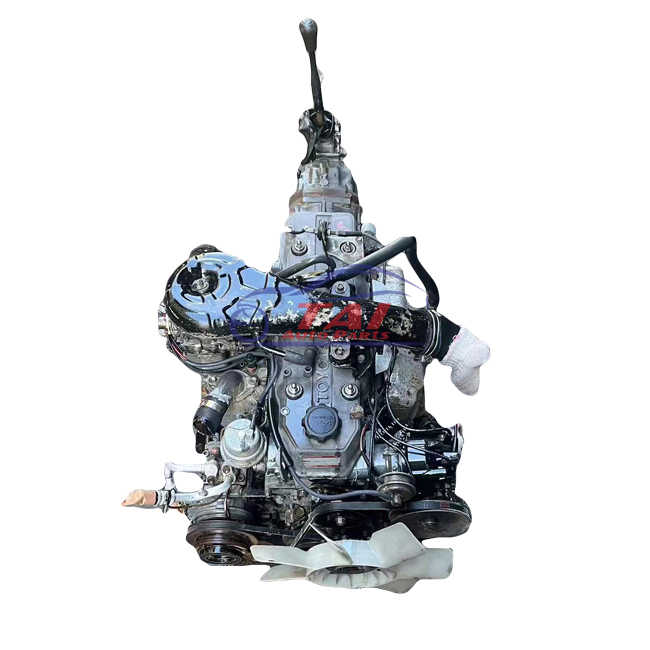Explore High Quality and Value: Your Overview to Buying a 2nd Hand Engine
When taking into consideration the acquisition of a pre-owned engine, recognizing the complex balance in between quality and worth is vital. An extensive analysis of engine problem, history, and dependability is necessary to ensure an audio financial investment.
Understanding Engine Types
When thinking about the acquisition of a second-hand engine, comprehension of the various engine kinds is vital for making a notified choice. Engines can usually be classified into 2 major types: inner burning engines and electrical engines. Internal burning engines, which consist of gasoline and diesel versions, rely upon the burning of fuel to produce power. Fuel engines are normally lighter and rev higher, making them appropriate for efficiency cars, while diesel motor are renowned for their torque and fuel effectiveness, usually favored in heavy-duty applications.
On the various other hand, electric engines use electricity kept in batteries to power the automobile, supplying a cleaner alternative with less moving components and lowered maintenance requirements. Within these categories, there are even more distinctions, such as four-stroke versus two-stroke inner burning engines, and different electric motor configurations.
Understanding these distinctions is important, as they affect performance, compatibility with existing car systems, and long-lasting operational costs. By familiarizing oneself with the various kinds of engines available, potential buyers can much better assess their needs and make choices that line up with their vehicle's requirements and their individual choices.

Reviewing Engine Problem
A comprehensive assessment of engine condition is vital for anyone considering the acquisition of a pre-owned engine. Begin with an aesthetic evaluation; look for signs of oil leaks, deterioration, or any physical damages to the engine block. A clean engine is typically a sign of excellent upkeep methods, while extreme gunk may suggest neglect.
Following, assess the engine's components, consisting of the timing belt, gaskets, and seals. Look for deterioration, as these parts can be pricey to change. Additionally, examine the engine places, as harmed installs might result in resonances and more mechanical issues.
A compression examination is vital to assess internal engine wellness. Uniform compression across all cylinders suggests a well-kept engine, whereas considerable disparities may point to internal damage or wear.
Paying attention to the engine during a startup can supply beneficial insights; any unusual sounds, such as rattling or knocking, may suggest deeper concerns. If possible, demand a test run to evaluate performance under tons. By meticulously evaluating these elements, possible buyers can make informed choices and safeguard a high quality used engine.
Monitoring Engine History
Comprehending the engine's background is important for making a knowledgeable acquisition. Knowledge of previous use, upkeep records, and any type of previous problems can substantially affect the engine's dependability and longevity. Beginning by requesting the automobile recognition number (VIN) or engine identification number, which allows you to trace the engine's background.
Make use of readily available sources, such as Carfax or AutoCheck, to obtain a vehicle background record. This report will provide crucial insights, including accident background, service records, and previous ownership information. Toyota RunX RSI. Pay certain attention to any indicators of severe damages or repeated repair services, which may indicate underlying issues
Inquire concerning maintenance routines executed on the engine. Normal oil changes, timing belt replacements, and various other safety nets reflect accountable possession. Furthermore, ask if the engine has actually undertaken any modifications, as non-standard modifications can affect performance and compatibility with your automobile.
Finally, if possible, look for confirmation from a trusted mechanic that can examine the engine's problem based upon its background (Toyota RunX RSI). This detailed examination will assist you make sure and stay clear of possible pitfalls that your financial investment is rewarding and audio
Guarantee and Return Policies
Getting a pre-owned engine frequently comes with differing warranty and return policies that can dramatically influence your decision. When taking into consideration an utilized engine, it is necessary to extensively assess the warranty choices provided by the seller. Some vendors may use minimal guarantees that cover details elements for a defined period, while others could give even more thorough coverage. Understanding the conditions and terms affixed to these service warranties is critical, as they can affect the long-term value and dependability of your acquisition.

In addition, trustworthy sellers frequently supply resource documents that describes the guarantee and return procedure, making certain transparency. Always request for this information before finalizing your acquisition. A well-defined service warranty and return plan can give satisfaction and protect your financial investment, making it an important part of the decision-making procedure when buying a pre-owned engine.
Discovering the Finest Offers
When looking for the very best deals on a second-hand engine, it is crucial to perform complete research study and compare rates from various vendors. Start by exploring on the internet marketplaces, automobile forums, and regional salvage yards to collect a thorough understanding of the marketplace. Using price contrast tools can simplify this procedure, highlighting affordable prices throughout various platforms.

Consider timing your acquisition tactically. Seasonal variations sought after can influence costs, with certain times of the year using far better deals. Additionally, be open to working out costs; many vendors may agree to decrease their asking rate, specifically if the engine has actually been provided for an extensive duration.
Conclusion
In summary, purchasing a second-hand engine requires a complete analysis of quality and value. Assessing engine problem through examinations and evaluations, confirming its history, and recognizing guarantee and return policies are important steps.
When considering the acquisition of a second-hand engine, understanding of the various engine types is vital for making an educated choice. Engines can normally be categorized into two main types: inner burning engines and electric engines. Fuel engines are normally lighter and rev higher, making them appropriate for efficiency automobiles, while diesel engines are renowned for their torque and fuel effectiveness, commonly favored in heavy-duty applications.
An extensive analysis of engine condition is extremely important for any person taking into consideration the purchase of a second-hand engine. this contact form Beginning by asking for the car recognition number (VIN) or engine serial number, which enables you to map i loved this the engine's history.